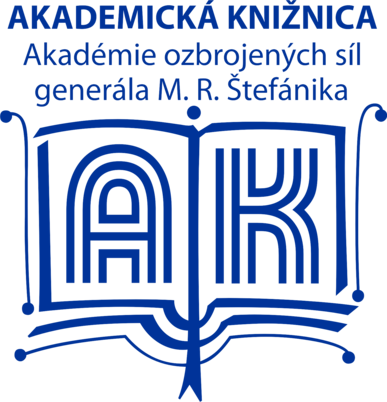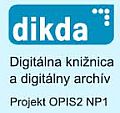Národná a medzinárodná bezpečnosť 2023
Národná a medzinárodná bezpečnosť 2023
- Podrobnosti
- Kategória: Národná a medzinárodná bezpečnosť 2023
- Návštevy: 448
Kybernetické operácie ako súčasť kybernetických hrozieb
Fulltext (.pdf 758 kB)
https://doi.org/10.52651/nmb.c.2023.9788080406516.142-150
Autor: Vojtech JURČÁK, Vladimír ANDRASSY, Katarína STOLÁRIKOVÁ
In: Národná a medzinárodná bezpečnosť 2023 [National and International Security 2023]: zborník príspevkov zo 14. medzinárodnej vedeckej konferencie [online].
ISBN: 978-80-8040-651-6 (online)
Strany: 142 - 150
Rok vydania: 2023
Vydavateľ: Akadémia ozbrojených síl generála Milana Rastislava Štefánika, Liptovský Mikuláš
Abstrakt: This article was supported by the Research and Development Support Agency based on Contract No. APVV-20-0334. Today's world is becoming more vulnerable, more dangerous. The development of the security environment is becoming more dynamic and difficult to predict. The concept of security, defined by Barry Buzan and his scientific team in the 80s of the last millennium, extends to the field of cyber security. We are increasingly encountering cyber-attacks, which represent a global security threat to the world. Cyber space is becoming another dimension where military operations can take place on land, sea, in the air and in space. Cyber space was defined by the NATO summit in Wales, September 2014 and later at the Warsaw NATO summit, July 2016 in the form of the Alliance's commitment in the field of cyber defence. The NATO confirms to follow the principle of restraint and to support the maintenance of international peace, security and stability in cyberspace. In the article, the authors point out some manifestations of cyber-attacks, the need to protect cyber and information systems and in a close historical excursion, they analyse the effects of these attacks in stages of their development.
Kľúčové slová: Cyber Security, Cyber-attack, Cyber Space, Cyber warfare
Citácia:
JURČÁK, Vojtech; ANDRASSY, Vladimír and STOLÁRIKOVÁ, Katarína. Kybernetické operácie ako súčasť kybernetických hrozieb. In: Národná a medzinárodná bezpečnosť 2023 [National and International Security 2023]: zborník príspevkov zo 14. medzinárodnej vedeckej konferencie [online]. Liptovský Mikuláš: Akadémia ozbrojených síl generála Milana Rastislava Štefánika, 2023, s. 142-150. ISBN 978-80-8040-651-6 (online). Dostupné na internete: https://doi.org/10.52651/nmb.c.2023.9788080406516.142-150
- Podrobnosti
- Kategória: Národná a medzinárodná bezpečnosť 2023
- Návštevy: 312
Vplyv dezinformácií na občiansku spoločnosť v krajinách V4
Fulltext (.pdf 830 kB)
https://doi.org/10.52651/nmb.c.2023.9788080406516.151-165
Autor: Alexander KELÍŠEK, Kristián FURIAK
In: Národná a medzinárodná bezpečnosť 2023 [National and International Security 2023]: zborník príspevkov zo 14. medzinárodnej vedeckej konferencie [online].
ISBN: 978-80-8040-651-6 (online)
Strany: 151 - 165
Rok vydania: 2023
Vydavateľ: Akadémia ozbrojených síl generála Milana Rastislava Štefánika, Liptovský Mikuláš
Abstrakt: In the 21st century, we live in an era in which information moves the world. But at the same time, we are exposed to modern technologies and what was unimaginable two decades ago has become our everyday reality. Currently, we have the opportunity to use a high-speed Internet connection on several devices in the home. Another phenomenon has become social networks, which allow us to communicate very effectively with the whole world. However, the disadvantages of this technological progress are coming to the fore. Information on the Internet can often be incomplete, distorted, biased or false. However, humanity was not prepared for the increase in intensity and amount of information. Due to the lack of skills in critical thinking and fact-checking, people often succumb to the pressure of misinformation in the online space. This fact brings with it several risks in the form of the negative impact of misinformation on individuals, civil society, and even on democratic processes in individual countries. In March 2023, Globsec conducted a questionnaire survey on the propensity of citizens to believe disinformation on a sample of 1,000 respondents in each of the nine selected EU countries (focused on Central and Eastern European countries). Based on the results of this questionnaire survey, the authors of the article will perform a comparative analysis of the impact of disinformation on civil society in the V4 states, because in these countries the issue of disinformation appears to be the most prominent. After evaluating the results of the analysis of the questionnaire survey, they then open a discussion and establish substantive conclusions.
Kľúčové slová: disinformation, propaganda, hoaxes, democracy, civil society, global warming
Citácia:
KELÍŠEK, Alexander and FURIAK, Kristián. Vplyv dezinformácií na občiansku spoločnosť v krajinách V4. In: Národná a medzinárodná bezpečnosť 2023 [National and International Security 2023]: zborník príspevkov zo 14. medzinárodnej vedeckej konferencie [online]. Liptovský Mikuláš: Akadémia ozbrojených síl generála Milana Rastislava Štefánika, 2023, s. 151-165. ISBN 978-80-8040-651-6 (online). Dostupné na internete: https://doi.org/10.52651/nmb.c.2023.9788080406516.151-165
- Podrobnosti
- Kategória: Národná a medzinárodná bezpečnosť 2023
- Návštevy: 520
Sociálne médiá ako nástroje radikalizácie: analýza digitálnych stôp
Fulltext (.pdf 807 kB)
https://doi.org/10.52651/nmb.c.2023.9788080406516.166-180
Autor: Milan KUSÁK
In: Národná a medzinárodná bezpečnosť 2023 [National and International Security 2023]: zborník príspevkov zo 14. medzinárodnej vedeckej konferencie [online].
ISBN: 978-80-8040-651-6 (online)
Strany: 166 - 180
Rok vydania: 2023
Vydavateľ: Akadémia ozbrojených síl generála Milana Rastislava Štefánika, Liptovský Mikuláš
Abstrakt: In today's world, social media has become a significant tool for the dissemination of extremist ideologies and the radicalization of individuals. This article focuses on the importance of digital footprints in social media for detecting and analyzing processes of radicalization. We apply methods of digital forensics to identify patterns of interaction, content, and communication that signal radicalization activity. Our findings show that the analysis of digital footprints can contribute to more effective monitoring and prevention of extremist activities.
Kľúčové slová: digital tracks, online radicalization, social media
Citácia:
KUSÁK, Milan. Sociálne médiá ako nástroje radikalizácie: analýza digitálnych stôp. In: Národná a medzinárodná bezpečnosť 2023 [National and International Security 2023]: zborník príspevkov zo 14. medzinárodnej vedeckej konferencie [online]. Liptovský Mikuláš: Akadémia ozbrojených síl generála Milana Rastislava Štefánika, 2023, s. 166-180. ISBN 978-80-8040-651-6 (online). Dostupné na internete: https://doi.org/10.52651/nmb.c.2023.9788080406516.166-180
- Podrobnosti
- Kategória: Národná a medzinárodná bezpečnosť 2023
- Návštevy: 257
Vplyv Ruska na Pobaltie
Fulltext (.pdf 790 kB)
https://doi.org/10.52651/nmb.c.2023.9788080406516.181-194
Autor: Richard LIŠKA
In: Národná a medzinárodná bezpečnosť 2023 [National and International Security 2023]: zborník príspevkov zo 14. medzinárodnej vedeckej konferencie [online].
ISBN: 978-80-8040-651-6 (online)
Strany: 181 - 194
Rok vydania: 2023
Vydavateľ: Akadémia ozbrojených síl generála Milana Rastislava Štefánika, Liptovský Mikuláš
Abstrakt: The aim of the work is to analyze the power struggle for the Baltics with a focus on the influence of the Russian Federation. We looked at the Baltics from Middle Ages to the modern age. Throughout the period, the inhabitants of the Baltics were shaped by the numerous expansions of neighboring nations. All these factors interacted and influenced each other, which ultimately led to the creation of separate states of Estonians, Latvians and Lithuanians at the beginning of the 20th century. Especially the recent, stormy several-hundred-year history of these nations is very well documented and stored in the collective memory of the nations. These experiences with their own history shape the opinions and attitudes of these peoples towards the current situation with which the Baltic states are confronted. The current geopolitical situation in Europe and especially the expansionist policy of Russia changed in the new millennium with a significant impact on Eastern Europe.
Kľúčové slová: The Baltic states, Russian influence, NATO´s eastern flank
Citácia:
LIŠKA, Richard. Vplyv Ruska na Pobaltie. In: Národná a medzinárodná bezpečnosť 2023 [National and International Security 2023]: zborník príspevkov zo 14. medzinárodnej vedeckej konferencie [online]. Liptovský Mikuláš: Akadémia ozbrojených síl generála Milana Rastislava Štefánika, 2023, s. 181-194. ISBN 978-80-8040-651-6 (online). Dostupné na internete: https://doi.org/10.52651/nmb.c.2023.9788080406516.181-194
- Podrobnosti
- Kategória: Národná a medzinárodná bezpečnosť 2023
- Návštevy: 220
Je koncepcia ľudskej bezpečnosti prekonaná?
Fulltext (.pdf 564 kB)
https://doi.org/10.52651/nmb.c.2023.9788080406516.195-199
Autor: Petra MARTAUS
In: Národná a medzinárodná bezpečnosť 2023 [National and International Security 2023]: zborník príspevkov zo 14. medzinárodnej vedeckej konferencie [online].
ISBN: 978-80-8040-651-6 (online)
Strany: 195 - 199
Rok vydania: 2023
Vydavateľ: Akadémia ozbrojených síl generála Milana Rastislava Štefánika, Liptovský Mikuláš
Abstrakt: The introduction of human security concept through the UN Development Programme’s Human Development Report from 1994 promised a revolutionary move in security studies, reorienting the focus on individuals rather than the states. The hopes that this concept would significantly change the course of security studies thinking did not fulfill, at least not as some had hoped. However, other critics argue that it still has potential, and they continue to provide empirical evidence that recognizes the work non-state actors do in providing security and to influence the policy of states and international institutions. As such, the human security concept continues to be relevant to state and non-state actors alike.
Kľúčové slová: human security, security studies
Citácia:
MARTAUS, Petra. Je koncepcia ľudskej bezpečnosti prekonaná? In: Národná a medzinárodná bezpečnosť 2023 [National and International Security 2023]: zborník príspevkov zo 14. medzinárodnej vedeckej konferencie [online]. Liptovský Mikuláš: Akadémia ozbrojených síl generála Milana Rastislava Štefánika, 2023, s. 195-199. ISBN 978-80-8040-651-6 (online). Dostupné na internete: https://doi.org/10.52651/nmb.c.2023.9788080406516.195-199



